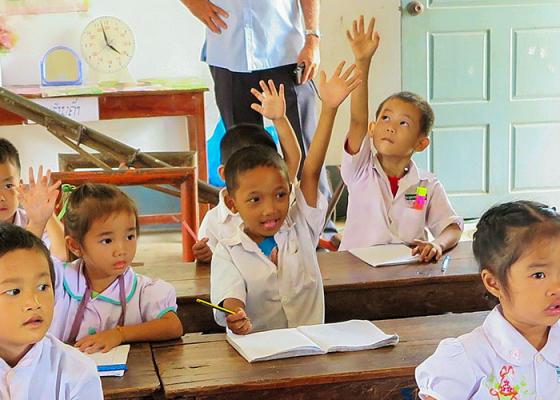Strengthening the early childhood caries evidence base in Cambodia
Until recently in Cambodia there have been only limited data on early childhood caries (ECC), so that in 2014 we were pleased to provide a grant to the Oral Health Bureau, Ministry of Health, for a longitudinal oral health survey to be conducted over a period of about two years, with data being collected at three different time points. The survey was to be carried out alongside the Cambodian Health and Nutrition Monitoring Study (the CAHENMS study) being undertaken by UNICEF. The aims of the study were to examine the ways in which dental caries experience is linked with, and contributes to, under-nutrition in Cambodia, and to establish evidence for a theoretical model of the relationship between dental caries and under-nutrition in a Cambodian environment.
In the cross-sectional survey on a sample of preschool children conducted in 2017, the sample included 3,985 participants between birth and four years of age. They were recruited from three provinces, Phnom Penh, Kratie, and Ratinakiri. The children were examined in the field setting, and caregivers were invited to complete a short questionnaire which addressed dietary habits and oral health knowledge and behaviours. The Family Impact Scale was used to measure Oral-Health-Related Quality-of-Life.
In 2018 a follow-up survey was conducted. Around 40%, 1,551 subjects, were lost to follow-up. The results showed that the children from Phnom Penh had a statistically significant higher prevalence of decay (58%) than those in Kratie (45%) and Ratinakiri (46%). The final data collection was conducted in May 2019. The analysis of the complex data sets, required to address the research questions, is ongoing.
The Oral Health Bureau team enjoyed excellent cooperation from their collaborators, UNICEF and the Reproductive and Child Health Alliance team, the participating local authorities and health volunteers at all sites, and the children’s parents.
The Southeast Asian Forum for Early Childhood Caries in 2016 identified the need for more epidemiological surveys involving preschool children. We were therefore pleased to provide support for this important public health initiative in Cambodia, as we have also in a number of countries, to help raise the profile of ECC.
This survey facilitated closer relationships with large organisations working in maternal and child health. There is now a strong will in Cambodia to develop a strategic plan and hold a national consultative workshop to consider the framework required to access ECC interventions through the primary health care system.

